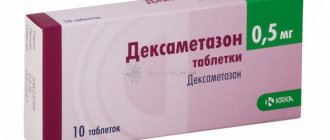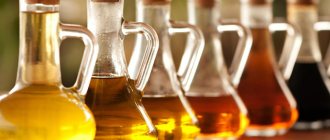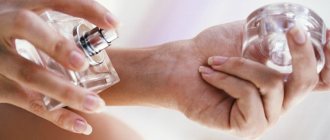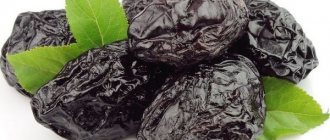If you ask yourself which drink is the most popular in the world, then without hesitation you can answer that it is Coca-Cola.
Thanks to its excellent taste, this drink is loved by most of humanity. After all, advertising for Coca-Cola has not lost its position for many years, and it can be seen literally at every step.
Today, many people, from young children to adults, use it almost every day. But few people think that Coca-Cola may contain various allergens to which the body gives a certain reaction. And these reactions can lead to serious allergies.
Causes
Cola is a drink that will appeal to both adults and children.
It has an attractive aroma and goes well with many types of food - especially fast food, instant food. Many cafeteria and fast food restaurant chains use this in their menu composition. The demand for cola has been and remains high, but not all people tolerate its use well.
Can the drink be considered the culprit for allergy symptoms or should we look for other causes?
Let's start with the fact that there are dozens of varieties of cola - the most famous, of course, are Coca-Cola and Pepsi-Cola, in some way symbolic drinks, the advertising of which has not stopped for many years. However, although different varieties of cola are produced in different places, the classic composition is as follows:
- Water.
- Sugar.
- Caramel.
- Caffeine.
- Orthophosphoric acid.
- Additional colors and flavors.
Sometimes the composition also contains the stabilizer gum arabic. In addition, since the drink is carbonated, carbon dioxide is also added to the water - because of it, bubbles are visible in the glass and, after shaking the bottle, effervescent foam appears when opened. Thus, each drink package can contain more than 5 different ingredients.
Now you need to understand what an allergy is. A true allergic reaction occurs only after the immune system remembers the causally significant allergen and antibodies - class E immunoglobulins (IgE) - appear in the body. From this moment on, each intake of a provoking substance will be manifested by various pathological changes - from skin rash to anaphylactic shock. There is also the concept of allergy, in which the release of histamine, the main mediator (biologically active substance) of the allergic reaction, occurs without the participation of antibodies.
True allergies are caused by proteins and compounds of proteins with other substances. Sugar or other carbohydrate cannot become an allergen; it only intensifies the reaction due to the activation of fermentation processes in the intestines. Dyes, flavor enhancers and flavorings can act as histamine liberators, that is, pseudo-allergies provocateurs - the greater the amount that enters the body, the brighter the symptoms will be.
There are no strong allergens in cola, but the development of a pseudo-allergic reaction or individual intolerance cannot be ruled out.
An allergy to Coca-Cola and other types of drink, as a rule, is not true - unless during the manufacturing process a protein to which the patient is sensitive accidentally appears in the carbonated water. But in this case we are talking about low-quality products. Much more likely is a pseudo-allergic reaction, the severity of which depends on the volume of cola drunk. In addition, gum arabic can be an allergen, but this substance is not always found in cola.
What to do?
What should be the action when it is already known for sure that you are allergic to cola. The very first option is to stop buying and drinking it. Convince yourself that health is more important. Instead of Coca-Cola, it is better to drink water, but if you cannot do without sweet drinks, then you can drink natural fruit juices.
If you notice allergy symptoms on yourself, you should immediately drink an anti-allergenic drug. The most harmless are Larotodin and Deozolin . To combat symptoms, antihistamines ( Zodak , Cetrin , Suprastin ) are used.
Allergy symptoms can be severe or mild. If your body requires the drink Coca-Cola, then with mild symptoms you can drink it. But only in limited quantities and a couple of times a month.
When buying Coca-Cola, it is better for allergy sufferers to look at the label and familiarize themselves with the composition. If you see your allergen, you should refuse to purchase.
Symptoms
A person consumes many products every day, and cola can simply get “lost” in the list if the search for the cause of an allergic reaction does not begin immediately, but several days or even more weeks after the onset of symptoms. In addition, you should not think about allergies if complaints have just appeared, and cola was drunk once a few days ago. Allergy symptoms can be divided into several groups.
Dermatological and gastroenterological manifestations
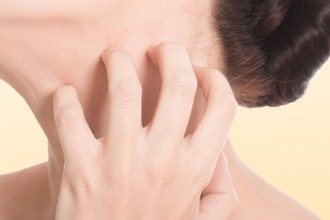
Dermatological symptoms occur most often in both true allergies and pseudoallergic reactions and can be expressed in the appearance of skin itching and skin rash. However, it is worth making a reservation - such symptoms can be caused not so much by the components of the drink, but by the reaction of a particular organism to them. For example, if a patient suffers from diseases of the digestive system, he is initially sensitive to foods high in sugar.
Gastrointestinal symptoms - nausea, heaviness and pain in the abdomen, stool upset, flatulence - appear due to irritation by the ingredients of the drink, in particular carbon dioxide, dyes.
It is not without reason that cola and other versions of carbonated water with sugar are excluded from the diet of patients with damage to the digestive organs or endocrine system.
Their use can intensify painful manifestations, especially if the primary process is in an active stage, and the person does not receive adequate treatment or does not follow the diet prescribed by the doctor. In this case, we are not talking about allergies, but about individual intolerance due to the presence of chronic diseases of the digestive system.
Manifestations from the ENT organs and eyes
Among them are:
- Runny nose.
- Coughing, coughing.
- Swelling of the eyelids, redness of the eyes.
- Watery eyes, itchy eyelids.
Cola usually does not cause such reactions, except for a short-term sore nose and throat due to irritation from the released gas. For the same reason, a rapidly passing cough may occur. If swelling or severe itching is observed, it is worth looking for another cause. The allergen could be found not only in food, but also in the air - for example, plant pollen.
General manifestations
If cola contains histamine liberators, a person may experience various symptoms, including weakness, dizziness, nausea, headache, and hives (a rash in the form of blisters). However, such reactions are very rare.
Individual intolerance to cola most often manifests itself as damage to the skin and digestive system in people with chronic diseases of the stomach and intestines.
Symptoms
Sometimes people have doubts about whether they may be allergic to Pepsi. If you have problems drinking any soda, it is better not to experiment. But if you want, you can take a risk. Although drinks have different compositions, in general, the less acid a person gets, which is found in abundance in any soda, the better.
When an allergy to Cola develops, the symptoms are identical to the reaction to Pepsi when rejecting negative substances. But everything happens individually for each person, since there are many factors that change the clinical picture of the disease. The simplest division is an adult and a child.
People of different ages experience one disease differently and give different symptoms to the drink. Also, an allergy to Pepsi can be classified according to which organs are affected by the atypical reaction to the drink.
Dermatological and gastroenterological symptoms
A disorder of the gastrointestinal tract system is expressed in the following:
- diarrhea;
- bloating;
- excessive gas formation;
- gagging;
- nausea;
- heartburn;
- belching.
Symptoms of urticaria develop on the skin: rash, itching, redness.
Manifestations from the ENT organs and eyes
Allergy symptoms affecting the organs of vision, hearing and respiratory system are considered the most dangerous due to the high risk of complications. Usually develop:
- swelling of the face and mucous membranes;
- tissue irritation;
- cough;
- sneezing;
- tearfulness;
- runny nose.
Additionally, there may be a burning sensation in the eyes or loss of smell as a result of swelling of the nasal airways. In critical situations, angioedema may develop.
Treatment
What to do if a person has discovered sensitivity to cola? To get started you need:
- stop using it;
- give up other carbonated drinks;
- stick to a diet, excluding fried and other unhealthy foods.
In this case, the irritant is eliminated and the condition of the digestive system improves - the patient prevents possible complications. If symptoms do not disappear after quitting cola, you should consult a doctor. Perhaps the culprit of the disease is not a carbonated drink at all; it could even be household dust that a person came into contact with after moving to a new home. Having identified the cause, you can think about ways to eliminate it. You may need to use medications:
- H1-histamine receptor blockers (Cetirizine);
- cromones (sodium cromoglycate);
- glucocorticosteroids (Mometasone furoate).
A reaction to cola should not be treated on your own with medication, as this can worsen the condition - you should first consult a doctor. For any type of food allergy or individual food intolerance, the best solution is to exclude the causative product from the diet. Stopping the use of cola and adjusting the diet is sufficient in most cases, but if not, treatment of the underlying disease of the digestive system is required under the supervision of a gastroenterologist.

This is an acute reaction of the immune system to an allergen (a certain substance or a combination of them), which is normal for other people. For example, animal hair, dust, food, medicines, insect bites, chemicals and pollen, certain medications.
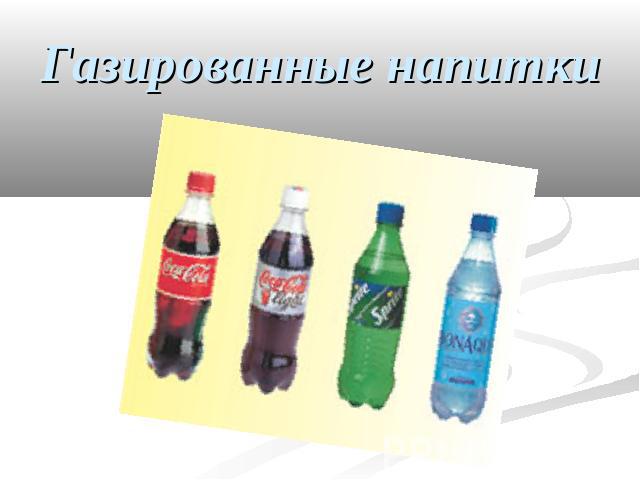
With an allergy, an immunological conflict occurs - during a person’s interaction with an allergen, the body produces antibodies that increase or decrease sensitivity to the irritant.
Similar article - Caesarean section in what cases
Factors provoking the occurrence:
genetic predisposition, low level of ecology, stress, self-medication and uncontrolled medication, dysbacteriosis, underdeveloped immune system of children (a high level of sanitation prevents the child’s body from producing antibodies to “good antigens”).
Types of allergies and their symptoms:
- Respiratory allergies are the effects of allergens that are present in the air (animal hair and dander, plant pollen, mold spores, dust mite particles, other allergens) on the respiratory system. Symptoms: sneezing, wheezing in the lungs, nasal discharge, suffocation, lacrimation , itchy eyes.
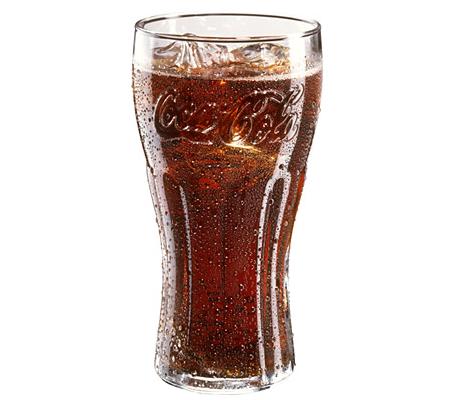
Subtypes: allergic conjunctivitis, hay fever (hay fever), bronchial asthma and allergic rhinitis. Allergic dermatoses - exposure to allergens (metal allergens...
A little about the disease
In short, an allergy is a reaction to an irritant that the body determines to be dangerous. It can be different for different people, sometimes purely individual.
This irritant (allergen) can be pollen, medications, sweat secretions, pet saliva, and much more. However, the most common type of disease is foodborne.
A person consumes an innumerable amount of food products, including drinks. And in each of them (the exception is, perhaps, spring water) there may be components that are allergens for at least a few people. And in Kolya there are enough such potential irritants.
Once such allergens enter the body, enzymes called histamines are activated. They begin to be produced in large quantities, forcing the body to reject the irritant.
And the body rejects it, reacting with a rash, runny nose and other characteristic manifestations. This is how the disease, which today is called almost the main scourge of humanity, declares itself.
Useful products for allergies
In the warm season, especially in the summer heat, rarely does anyone imagine their life without cool carbonated drinks.
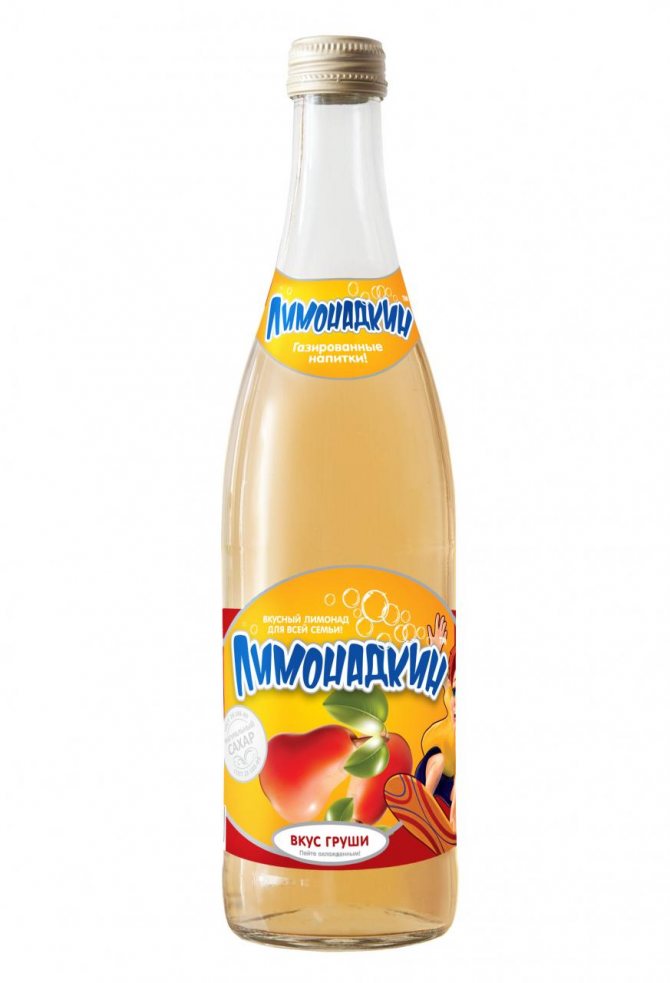
Some people prefer citrus fruits - Fanta, lemonade, others like tonics like cola or Pepsi, and still others like to quench their thirst with just “mineral water” with gas.
However, today a lot is written about the dangers of carbonated drinks. How true is this, who should not accept them, or should they be abandoned altogether?
Why does the reaction happen?
The drink itself is not an allergen, but some of its components are considered as such.
This product contains:
- orthophosphoric acid;
- caffeine;
- flavorings;
- carbon dioxide;
- sugar;
- caramel;
- dye.
It is the last component that is one of the most allergenic; it is also called sugar coloring. According to product classification, it is designated as E-150. It usually contains known allergens:
- lactose - this component is obtained from milk;
- glucose - a reaction to it often occurs when the pancreas is damaged;
- malt syrup.
As for the remaining components, they, as they say, are not without sin:
- Some people do not have enzymes in their bodies that metabolize caffeine; an allergic reaction results in itching, sneezing and headaches;
- phosphoric acid, as an allergen, makes breathing difficult and causes burning and tearing of the eyes; in large quantities it can even cause poisoning;
- the harmfulness of excessive sugar consumption is also well known;
- flavorings can cause a negative reaction even by smell.
In addition, many new modifications of Cola have now emerged - cherry, lemon, etc., which also contain quite a variety of irritants.
Important! Now, under the brand name of all kinds of drinks like Cola, the market is flooded with semi-handicraft products from local factories. Such drinks may even contain components that are hazardous to health. So it is better to buy products from trusted manufacturers.
Food allergies manifest themselves from the first sip of this liquid extremely rarely. Usually a person uses this product for a long time without any special consequences.
But some are able to drink almost liters of Cola - both during the heat, and after meals, and for cheerfulness, like coffee. Children and teenagers often indulge in such immoderate consumption, but adults also sin, even washing down alcohol with Coca-Cola.
As a result, a critical point is reached, and the body begins to consider the carbonated product an irritant. Then the following symptoms appear:
- in most cases, the first sign of illness is a rash and redness of the skin, itching is possible, turning into urticaria;
- diarrhea or constipation also often occur;
- cough begins;
- nausea occurs, ending with vomiting;
- runny nose, tearing, burning eyes are also common signs of this form of allergy;
- difficulty breathing is detected
Below you can see photos of skin manifestations of the disease.
Another dangerous consequence can be diabetes mellitus and the development of pancreatitis. This is caused by an allergy to glucose.
Important! A negative reaction can provoke swelling of the mucous membrane and attacks of suffocation, which can result in Quincke's edema, and even anaphylactic shock. This is deadly!
It is impossible to completely recover from allergies. But there are methods that calm the immune system and reduce the severity of symptoms. Therapy can be urgent or regular.
Medication
Schematically, the treatment of this disease looks like this:
- a diet is prescribed with a limitation of spicy and sweet and sour foods. You should give up any carbonated drink for now, Coca-Cola - first of all and for a long time, if not forever;
- antihistamines are prescribed that inhibit the pathological activity of histamines. The most used are Zodak, Cetrin, Suprastin;
- Corticosteroids are prescribed . These hormonal drugs are prescribed to prevent complex edema and, in general, in advanced cases of the disease. The most famous drug from this group is Prednisolone;
- appropriate drops or antispasmodic and antitussive drugs are prescribed, preferably of herbal origin, for example, Mucaltin. Provided that the pathology is accompanied by a cough or runny nose,
Important! In case of asthma attacks and the possibility of their occurrence, it is advisable to always have the simplest antihistamines (Suprastin) and anti-asthmatic drugs on hand.
It’s rare, but sometimes medications don’t give the desired effect, or it needs to be fixed. Then they resort, for example, to herbal medicine or acupuncture. Good results are obtained by staying in a pressure chamber or plasmapheresis - purification of blood plasma.
Spa treatment is often recommended, but in this particular case it is recommended to refuse it: at seaside resorts, Coca-Cola is offered literally at every turn. Not only is it difficult to resist the temptation, but the very sight of a bottle with a red label can cause a negative psychological reaction.
Folk remedies
There are quite a lot of them, but some doctors are skeptical about them. However, it is still worth taking these funds into account.
- Taking small amounts of honey and other bee products, such as propolis, helps a lot with this type of allergy. You can also replace sugar with honey, the consumption of which should be reduced.
- Rose hip decoction strengthens the body's immune system to fight this disease.
- Chamomile decoction lotions quickly soothe itching.
Prevention
To prevent a pathological reaction to a popular carbonated drink from making itself felt, you need to follow a number of clear rules:
- even drinking a drink once a day is harmful; it is enough to treat yourself once a week if allergies occur only after large amounts of soda;
- It is strictly forbidden to drink alcoholic drinks, spicy and fried foods with Cola and soda in general;
- You cannot mix different sodas - the interaction of some components can cause allergies almost instantly.
Sometimes a person is literally painfully addicted to Coca-Cola, and there is such a disease. In case of exacerbations of allergies, it is useful to prescribe sedatives. In the future, supervision by a narcologist is also necessary.
Excessive passion for Cola is akin to not only a love for fast food, but even an addiction to alcohol. Everything is good in moderation - in this case this aphorism is especially relevant.
An allergy to cola is an unpleasant phenomenon not only from a physiological, but also from an emotional point of view. A person feels cut off from society and has limited food choices. Coca-Cola is not just a drink. This is a symbol of mass culture. Drinking sparkling water makes you part of the lifestyle that the brand offers.
What is contained in carbonated drinks and what gas is included in their composition?
Few people think about what is included in their favorite fizzy drink.

In general, the main components of all sodas are:
- Water - ordinary purified;
- Carbon dioxide (E290) – saturates water, making it carbonated;
- Preservatives – citric acid (E330), phosphoric acid (E338); sugar or its substitutes;
- Dyes;
- Flavorings - sodium benzoate (E211);
- Caffeine (in soft drinks, tonics).
As for the composition of mineral soda, it can be made on the basis of natural water from a mineral spring , or artificially - by dissolving a certain composition of salts in ordinary drinking water.
All components of both waters are natural, with the exception of carbon dioxide, that is, it does not contain any flavors, colors or other impurities.
Later in the article we will look in more detail at such questions as: why carbonated water is harmful and what benefits it has for the human body, what danger soda poses to a child and how to reduce the harm from such drinks.
Results
To summarize, we can say that cola is not harmful. The problems that a person has with this drink is comply with the amount consumed . If you drink buckets of cola, then, naturally, it destroys the body. Therefore, you should not abuse it.
If you are allergic to cola, it is better to avoid it altogether, otherwise subsequent use can only aggravate the situation and lead to irreversible processes. There is no need to become dependent on cola; make it a habit to drink it only once a month, or even less.
Source
The effect of carbonated drinks on the human body
The fact that a favorite carbonated drink gives a person emotional pleasure cannot be disputed.
After all, positive emotions play a big role in life and, in particular, are needed to maintain health and well-being.
But if you look at the problem from the other side - how such drinks interact with our insides, how the digestive tract and the entire body cope with them, then the picture will not be so rosy.
Carbonated water has been used since ancient times for medicinal purposes, but only natural water, from mineral springs with natural gas, in measured quantities.
There are few such mineral springs, and the cost of such water is quite high.
The invention of artificial carbonation of water in the mid-18th century led to its excessive consumption and, as a consequence, to undesirable consequences due to excess carbon dioxide in the stomach and body.
Further, the invention of Coca-Cola at the end of the 19th century ushered in a new era for a whole “family” of sweet drinks. Other components also came to the “help” of carbon dioxide - high sugar content, various additives: dyes, preservatives, flavorings, which are increasingly not of natural, but of synthetic, cheaper origin.
This is useful to know!
Despite the fact that the human body has a mechanism for maintaining constancy (homeostasis), it is not unlimited, and cannot always withstand unacceptable, unnatural products, especially in excess quantities.
The craze for carbonated drinks has led to an increase in diseases of the digestive organs,...
Our body is 60% water. To maintain water balance, we drink every day. Some prefer coffee, others tea, beer, juices, soda. The basis of any drink is water. In addition to water, drinks contain other substances that affect our body. This effect can be positive or negative, depending on the regularity and volume of consumption of a particular drink.
A small amount of carbonated water will not harm a healthy adult. But frequent consumption of large quantities of sweet carbonated water can adversely affect your health.
Each carbonated drink has its own sweet and sour base. Roughly speaking, it contains some amount of sugar (or its substitute) and acid. Sugar is a pure carbohydrate. One gram of sugar produces 3.85 kilocalories. Pepsi-Cola has 57.74 kcal per 100 ml, Coca-Cola has 42 kcal per 100 ml. You can calculate how many pieces of sugar are contained in a 0.33 liter can of a particular drink. There are 8 pieces of sugar in Pepsi-Cola, 6.5 in Coca-Cola, 5.5 in Sayany, and 4 pieces of sugar in Schweppes bitter lemon.
The easily digestible calories found in carbonated drinks trick the brain. They seem to “slip by unnoticed” and reduce the feeling of hunger for such a short time that they practically do not affect the amount of food that a person then eats. But the “light calories” that enter the body are still utilized, mainly into fat. Therefore, excessive consumption of sweet carbonated water can increase the likelihood of obesity and diabetes.
People who are predisposed to obesity and diabetes should drink light water - it is made with a sweetener. In popular “zero calorie” drinks, sugar is replaced with artificial sweeteners, which are practically not absorbed by the body. You won't get any calories with this drink.
The most famous sweetener is aspartame (Nutrasvit). Aspartame is a protein. Some people may be allergic to this protein. Other sweeteners: saccharin, sunet (potassium acesulfate), cyclomate. Drinks with sweeteners have very low energy value, almost zero.
Sugar and sweeteners contained in drinks leave a sweet aftertaste that does not help quench your thirst.
Citric and malic acids are most often used in carbonated drinks. Less commonly, orthophosphoric acid. Calcium salts of orthophosphoric acid are more soluble than calcium salts of other acids used in drinks. Therefore, in people who drink drinks containing phosphoric acid, calcium is washed out of the bones better. In some cases, this can lead to weakening of bone tissue, making bones break more easily.
Sometimes a digital code is written instead of the name of the acid. Citric acid - E330, orthophosphoric acid - E338.
Any carbonated water must contain carbon dioxide. In itself, it is harmless (it is used to better preserve the drink), but its presence in water stimulates gastric secretion, increases the acidity of gastric juice and provokes flatulence - copious release of gases. For people with peptic ulcers, gastritis with high acidity and a number of other diseases of the stomach and intestines, before drinking any carbonated water, the gas must be released from the bottle by shaking. The same applies to mineral water. For medicinal use, it is recommended to release the gas from it.
Similar article: Is it necessary to pierce a blister for a burn?
Sugary carbonated drinks cause pancreatic cancer
Researchers at the University of Minnesota (USA) observed 60,524 men and women in Singapore for fourteen years. During this time, pancreatic cancer developed in 140 people. Those who drank two or more cans of sweet soft drinks per week (an average of five cans per 7 days) developed cancer 87% more often.
However, no connection was found between drinking fruit juices and developing cancer. Only soda has a negative effect! Scientists explain it this way: cola and similar drinks contain a lot of sugar, which is why the pancreas increases the production of insulin. This is what causes cancer. In addition, carbonated drink drinkers tend to eat worse than others, and this can also be bad for the pancreas.
Sugary carbonated drinks kill the heart
We have all heard a hundred times already that a healthy diet should not be accompanied by carbonated drinks with dyes, preservatives, flavors and other chemicals, but by clean drinking water or green tea. But do we follow this rule?
Perhaps the results of a recent study by American scientists will make soda lovers think again before putting a bottle of fizz in the supermarket trolley.
Cardiologists remind that sugary soda is not a healthy choice and its consumption should be kept to a minimum. Moreover, doctors call caffeinated cola and sugar-containing carbonated drinks, as well as non-carbonated high-calorie drinks and fruit juices that contain sweeteners, natural or artificial flavors, harmful to the heart. Researchers note that over the past 30 years, the frequency of consumption of such drinks has more than doubled, especially among teenagers and young adults.
Sugary carbonated drinks damage teeth
Frequent consumption of sugary carbonated drinks significantly increases the risk of being left without teeth, say experts from the Academy of General Dentistry.
Citric acid contained in fruit soda water leads to erosion of tooth enamel and, as a result, tooth loss.
Therefore, experts advise stopping drinking such drinks and replacing them with regular tea and juices.
During the study, experts compared the effects of black and green teas, soda and orange juice on tooth enamel. The results were as follows: tea, unlike soda and juice, did not destroy the enamel; green tea turned out to be healthier than black tea - it contains more natural flavonoids, which have anti-inflammatory properties.
But doctors advise drinking it without milk, lemon and sugar, because these products reduce the beneficial properties of tea.
Contraindications to drinking carbonated water
People with chronic diseases (allergies, excess weight, gastritis, peptic ulcers, colitis, etc.) are not recommended to consume carbonated sweet drinks in large quantities.
It is advisable not to give sweet carbonated drinks to children under 3 years of age.
Alternative to carbonated drinks
If you are planning a trip out of town, do not be lazy to prepare a cocktail: pure water (or any mineral water, just not medicinal) - 1.5 liters, citrus fruit juice (lemon, orange), a pinch of salt, a pinch of sugar. The result is a drink with a barely noticeable sour taste that quenches thirst well and supports the body.
Juices are healthier than sparkling waters. Freshly squeezed juices are the most beneficial. They contain all the vitamins and microelements, as well as fiber and other biologically active substances that fresh fruit or vegetables contain. Juices are easier for our body to absorb than fruits or vegetables. Unfortunately, not everyone has the opportunity to drink freshly prepared juices. Then you should pay attention to canned juices. During the industrial processing of juices, some vitamins, and especially ascorbic acid, are destroyed. But in most industrially produced juices, all the lost vitamins are added additionally. If we continue the conversation about useful substances, juices contain both potassium and iron. They also contain important substances such as organic acids. All this constitutes the well-known benefits of juices. In addition, in some cases, juice is a good help for stimulating appetite. In addition, it is quite nutritious, it contains a lot of carbohydrates, mainly sugars from fruits and berries. It is prohibited to add any preservatives other than citric acid to juices intended specifically for baby food. The most beneficial are juices with pulp. They contain more nutrients.
In addition to natural juices, there are also nectars. Nectar is juice diluted with water and sweetened with sugar. The content of vitamins, minerals and other useful components in them is less than in juices, but the gap in their quantities is not so significant.
Sugar is added to both juices and nectars. This is because some sugar-free juices are difficult to drink due to the taste (for example, lemon or grapefruit).
Juices have a healing effect. But to achieve the effect, an adult needs to drink 3 glasses of juice daily. Children under 3 years old are recommended to drink 1 glass of juice per day, diluted with water. It is better not to consume juices with all dishes and with mineral water. In case of chronic disease of the digestive system, juices drunk during and after meals can increase fermentation in the intestines and provoke an exacerbation of the disease. More often, with low and normal acidity of the gastric contents, juices are drunk 30-40 minutes before meals, and with excessive formation of hydrochloric acid in the stomach - an hour and a half after meals.
Excessive consumption of juice increases the load on the kidneys, which can lead to edema. In addition, juices are not without “chemistry”. Some manufacturers may add colorings and preservatives to juices, sometimes without disclosing this on the packaging. These substances may cause allergies.
Mineral waters, as well as juices, have a healing effect. Experts from the World Health Organization consider artificial and natural mineral waters to be equivalent. But under one condition: if water mineralization is carried out using good equipment, with normal salt dissolution and high-quality carbon dioxide. There is no universal advice regarding the amount of water you drink. It all depends on the diagnosis and concomitant diseases. When taking medicinal mineral waters, as is the case with conventional medications, an overdose is possible. Therefore, before you start taking medicinal mineral waters, it is advisable to consult your doctor.
When choosing a drink, do not be lazy to study the label; the ingredients should be indicated on it. Give preference to drinks made on a natural basis.
April 11, 2011
To the editor of the newspaper “Northern Panorama”
(“Bulletin of the Arctic”)
What is it made of?
It’s worth starting with the fact that the widespread opinion about the “heap of chemicals” in Coca-Cola is nothing more than a philistine myth, supported by spectacular and primitive tricks with Mentos, or the demonstrative use of Cola as a cleaning agent.
In fact, its composition is relatively simple, well-verified and, oddly enough, according to the results of many tests and examinations (including Russian ones), it is recognized as significantly less harmful to health than the composition of the vast majority of less famous manufacturers of carbonated drinks.
Below is a detailed composition and analysis of the components of the two main types of Coca-Cola, as well as an assessment of their allergenicity.
"Coca-Cola" regular
Sugar
There is usually no allergy to it, but it can worsen the condition of an existing allergy caused by other factors. This is an important point because Coca-Cola contains a lot of sugar.
Water
In general, it’s a harmless thing, unless you are one of those who easily believe in scary stories about “dihydrogen monoxide, which should have been banned a long time ago.”
Caramel coloring (natural)
This is essentially melted sugar, but the exact composition used in this drink is not disclosed to ordinary consumers, as it is a trade secret. As a result, it is difficult to draw any conclusions about its allergenicity.
Phosphoric acid (acidity regulator, E338)
An antioxidant, an analogue of citric acid, used throughout industry due to its low cost. Like citric acid, it is harmful to tooth enamel. It also provokes a violation of calcium metabolism in the body. Cases of allergy to this substance are quite rare.
Flavors (natural)
Another manifestation of trade secrets; it is not possible to establish an exact list of them.
Caffeine
A well-known stimulant, found in coffee and tea, it is also included in the list of essential medicines. Increases blood pressure, can cause sleep disturbances and fatigue (after cessation of action). It is addictive and can cause allergies.
"Coca-Cola Light"
Acesulfame potassium (sweetener, E950)
200 times sweeter than sugar, used in many products as a substitute. No dangerous side effects have been found, but overall this substance has not been sufficiently studied. It is not an allergen and does not increase allergies, as sugar does.
Aspartame (sweetener, E951)
Another sugar substitute, also about 200 times stronger. Research has proven its harmlessness, but its use is absolutely contraindicated for those suffering from phenylketonuria (a rare hereditary disease). Cases of allergy to aspartame have not been confirmed.
Sodium cyclamate (sweetener, E952)
40 times sweeter than regular sugar, it can enhance the effect of other carcinogens, but is not one of them. Banned in the USA since 1969 and in Russia since 2010, but despite this it is still found in many drinks and sweets. Like many synthetic substances, it rarely causes allergies.
Sodium citrate (acidity regulator, E331)
Food additive, derivative of citric acid. It is harmless and is even used in medicine. Among other effects, more noticeable with large doses: reduces heartburn, eases hangovers, reduces appetite, increases blood pressure. Not listed among known allergens.
Phosphoric acid, water, caffeine
These substances are identical to those used in classic Coca-Cola and are described above.
Flavors, dyes
Also similar to those already discussed.
Contraindications for use
There are a number of contraindications, in which the harm of soda greatly increases:
- Pathology of the circulatory system - hypertension, heart defects, coronary disease;
- Diseases of the central nervous system;
- Respiratory tract diseases – spastic bronchitis, asthma;
- Diseases of the digestive tract – gastritis, peptic ulcer, colitis;
- Liver diseases;
- Kidney diseases;
- Diabetes;
- Endocrine disorders;
- Obesity;
- Elderly age;
- Osteoporosis;
- During pregnancy and breastfeeding;
- Family history of cancer.
There is another “contraindication” for practically healthy people - frequent and excessive consumption of soda . This is especially true for Coca-Cola, which, according to scientists, contains substances that reduce the feeling of fullness and the sensation of sugar levels. A state arises when “you drink and want to drink.” They believe that this is a subtle marketing move by companies that just need to stay afloat.
The interval between drinking and eating should be at least an hour. The exception is those who have gastritis with low acidity, when additional intake of acid contained in drinks is not so dangerous.



